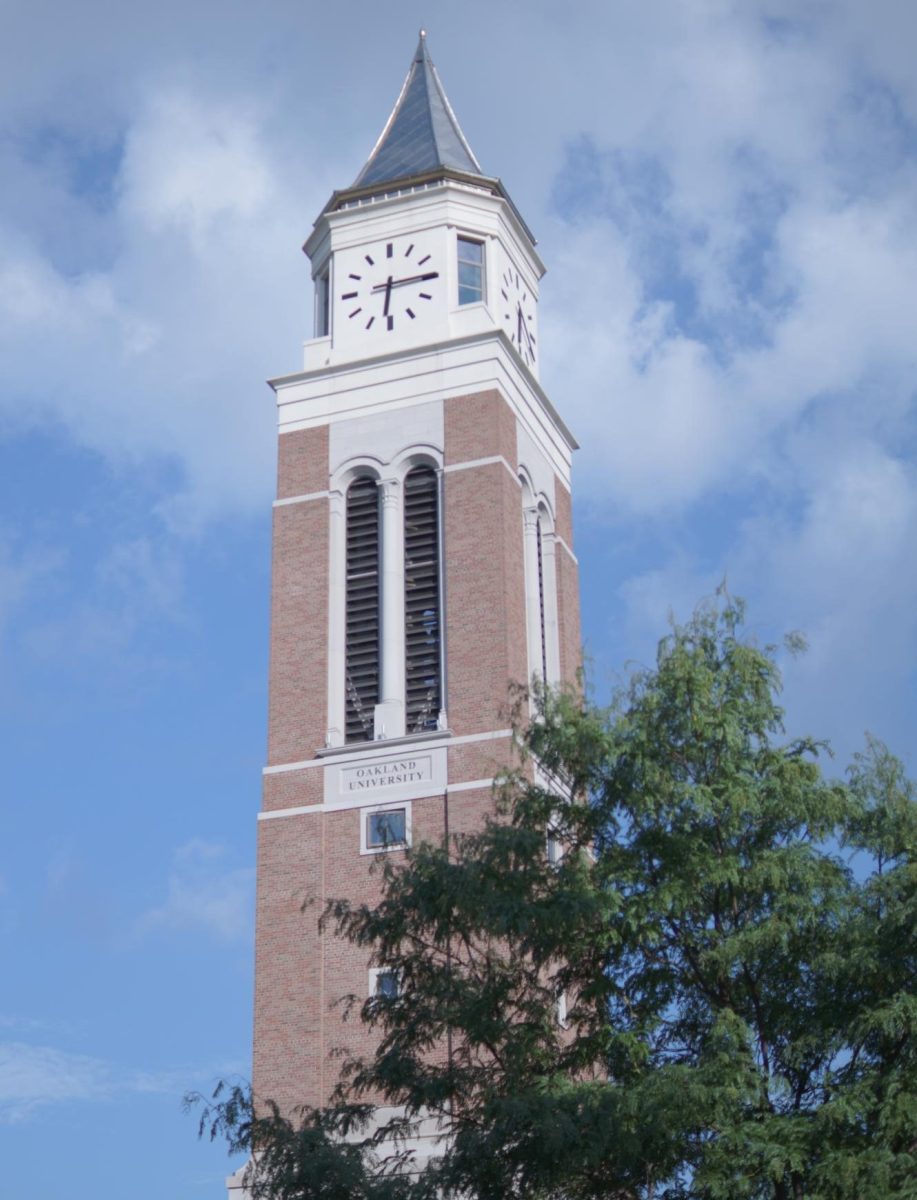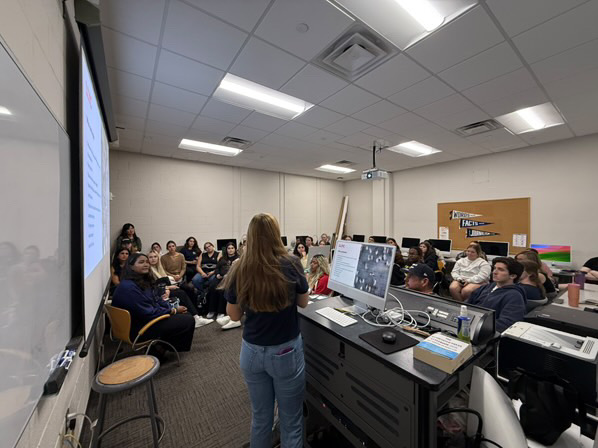With the faculty contract extended by one day, negotiations continue with the integration of a mediator to resolve differences in economics, workload and merit scores.
After four bargaining sessions since July 23, the Oakland University American Association of University Professors (OU-AAUP) and the OU Bargaining Team continue negotiations in hopes of reaching an agreement during the next scheduled session on Aug. 15.
The current contract expiration date was extended by one day, now also set for Aug. 15.
“There’s pressure from both sides,” George Sanders, associate professor of sociology, said. “Everybody wants this to be wrapped up as quickly as possible and the introduction of a mediator is anticipated to facilitate some of that.”
After a caucus halted the July 23 bargaining session, the administration team decided to call for a mediator. Assigned by the Michigan Employment Relations Commission (MERC), the inclusion of a mediator into contract negotiations is common practice.
“We were about $20 million apart at that point,” Stephen W. Mackey, vice president for Finance and Administration, said. “The university had come up $900,000 and the OUAAUP had come down $900,000 so we’re still $18 million apart. We weren’t making meaningful progress and I think that was really the catalyst to bring in a mediator.”
In the same session, the union adjusted language outlining the tiered contracts for special lecturers in Article IV (Academic Titles). They also presented a counter proposal for Article X (Professional Responsibilities), rejecting the administration’s universal workload proposal.
Interim Provost, Kevin Corcoran explained the reasoning behind the employer’s workload proposal.
“All faculty have three responsibilities — teaching, research and service,” Corcoran said. “Special instructors only have two of those, they don’t have research. So part of what we’re saying here is, if they only have two of those things and yet they have a full-time job, it makes sense for their teaching, within that same workload, to be greater than somebody who has all three of those expectations.”
Jennifer Lucarelli, associate professor of interdisciplinary health sciences, illustrated where the union’s refusal to agree with the proposal comes from.
“I would never want an opera faculty member’s workload to be used to calculate what a health science faculty member’s workload would look like,” Lucarelli said. “Those things are so very different in the ways of teaching that I trust that the music departments know what they’re doing and what it is as a reasonable workload.”
Mackey echoed the administration’s reasoning for the workload proposal.
“I look at this from the cost perspective and the affordability perspective,” Mackey said. “That’s why I’m very supportive of equalizing the workloads because it actually drives the cost of instruction down.”
OU-AAUP also presented costing information and highlighted the university’s current and future financial position as stable.
“We see increases in tuition happening, increases in state funding to the university and increases in other things like administrative salaries,” Lucarelli said. “Then we recognize that faculty salaries have not kept pace with that.”
The administration team also expressed through their bargaining updates that future demographic changes and Michigan’s free community college program could cause a decrease in tuition revenue and thus need to be accounted for in the economic proposals.
“Our core values have three pillars,” Mackey said. “The first is taking care of our people, including faculty; the second is affordability; the third is our financial stability. It got out of balance on the financial stability side when the state cut a percent out of our state allocation as well.”
The July 29 session elapsed in the presence of a mediator who communicated confidentially with both teams and had no authority to compel proposals or make decisions. The administration offered incremental increases to the merit pool proposal from July 10 and maintained their fixed distribution of merit scores proposal.
“[Faculty] are rated on a scale of one to five and their peers within the department evaluate their self-assessments,” Corcoran said. “There started to be this move towards all the numbers being fours and fives and what we’re trying to do with this recommendation is to say ‘let’s make a little bit more differentiation among the truly outstanding and the very good.’”
Corcoran mentioned that some faculty members expressed discontent with the current merit system. “One of the things I heard as a dean was, ‘I had this great year and I got this much more than somebody else who didn’t do any of those things,’” Corcoran said. “So that’s part of what we’re looking to address.”
Lucarelli explained the factors OU-AAUP takes into account when refusing to agree to the fixed distribution of merit scores.
“Workloads have increased so much,” Lucarelli said. “We’ve got more committees and more students in our classes, so it’s natural for us to be ‘fours or fives’ because we get points in so many categories for all of the stuff that we’re doing.”
In the same session, the university team clarified the state of $200 million in unrestricted reserves for the 2023 fiscal year.
“Of the $200 million of unrestricted reserve balances, only about $50 million is not already designated or committed for use,” the administration said in their bargaining update. “Committing to permanent and ongoing budget allocations (such as salary increases) where the funding source is one-time money (such as reserves) could put OU in the precarious position of having to make further budget cuts considering economic headwinds.”
OU’s finances were further discussed throughout the Aug. 5 bargaining session. OU-AAUP presented counter proposals for language and economic articles while sharing faculty testimonies about economic uncertainty resulting from the University’s financial decisions.
According to the union’s bargaining diary, faculty members have faced sacrifices like cutbacks on food spending, forgoing necessary medical procedures and mental healthcare, inadequate housing, reduction to childcare services and a need to engage in other employment to make ends meet, among other hardships resulting from insufficient salary.
“The picture that emerges from these responses is one of a faculty that is deeply committed to Oakland and its students but also struggling to provide for the necessities of a decent life for themselves and their families,” OU-AAUP said in an Aug. 5 bargaining session update.
Article IV (Academic Titles) was tentatively agreed with no adjustment to the special lecturers’ definition while OU-AAUP proposed a $8,500 lump sum increase to base salary in year one and a fixed 2.5% cost of living adjustment in year three. Other union counter proposals were:
- Article XIII (Compensation for Special Lecturers): a 12% first-year per credit salary increase and a 7% increase for years two and three
- Article XVIII (Retirement): a 15% increase in employer’s contribution to retirement once tenure or job security is achieved
Mackey made a financial presentation at the Aug. 8 session highlighting the economic points previously presented. The administration team also maintained their positions on the uniform workload and fixed merit distribution proposals.
The union and administration agreed to a Memorandum of Agreement to resume Article XXIX and Appendix I (Calendar) discussions after Jan.15, 2025. This creates more time for the teams to resolve controversies in more pressing articles as the deadline approaches.
For more information, visit the OU administration updates and OU-AAUP bargaining diary.








Pamela Hallman • Aug 31, 2024 at 4:12 PM
I am sad to see that yet again, our professors and faculty have to fight so hard for fair pay when it should just be a given. My first year at OU as a freshman I was confused on the contract and did not know enough to really take a stand. I am now a senior and I see this happening all over again. It is upsetting to see Ora trying to pin students against staff and professors by saying they will raise tuition if they raise professor pay. Now knowing OU has over 80 million dollars in reserves… it seems unnecessary to even suggest they would need to raise tuition yet again. I am becoming disheartened the more I learn about the higher ups at OU. I am confident things will be different this time if we can get more students aware of whats going on. I am sure students will gladly support their staff and do whatever is needed to fight for our OU family.